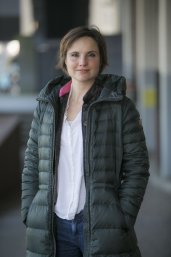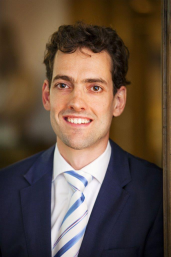From Parochialism to an Inclusive City
What do the people of Utrecht think of diversity? How do they feel about taking part in a film about diversity? These are the questions psychologist Madelijn Strick will attempt to answer with backing from the Public Engagement Seed Fund.
She has joined forces with Dr Lars Tummers of the Utrecht School of Governance, film director Ruud Bisseling and the Municipality of Utrecht to make a film in which various social groups from Utrecht are brought together: university students, people with a Turkish or Moroccan immigration background, locals from the Tuindorp area and long-standing residents of the working-class neighbourhood of Sterrenwijk. The film is accompanied by a questionnaire, asking participants about their experiences of living with diverse social groups in Utrecht.

Why is this film a good example of public engagement?
‘The participants have been drawn from multiple social groups from Utrecht, making for a very diverse sample. We have made it explicit that we want them to play an active role in our research. We will be sharing the project's intentions, results and conclusions with the participants through interactive discussions and clear explanations. For instance, we are creating an appealing and easy-to-read booklet with a large amount of images and little text for people to take home with them at the end of filming. This way, the participants in the investigation also become its “end users”. Our objective is to make a diverse group of people from Utrecht acquainted with the methodology and results of scientific research. We will also be organising a return session to ask them to share their questions and experiences with us and to assess the extent to which their knowledge and understanding of scientific research has increased.’
The participants in the investigation also become its “end users”.

What is so important about public engagement?
‘This project is a collaboration between the Municipality of Utrecht and the Utrecht Young Academy (UYA), a platform for ambitious young academics from Utrecht University. A key aim of the UYA is to increase society's awareness and understanding of scientific ways of thinking. People who grow up in an environment of academic achievement are encouraged to become students themselves. However, some groups in our society hardly come into contact with science at all. This is a pity, for the world of science can be relevant and exciting for those people as well.
Science is about curiosity and subjecting the world to an open and inquisitive gaze. It should be a choice that is available and accessible to everyone, even if they are the first members of their family to go to university. What we are trying to do is to reach out to people by organising exciting activities that introduce participants to science in a fun way, so that they can experience for themselves what scientists do and how they do it.’
Why did you apply for funding from the seed fund?
‘We found out through the Utrecht Young Academy that we might qualify for funding. We were really keen, so we submitted an application straight away. Fortunately, we were successful. The funding allows us to communicate with participants in a professional manner, which will enable us to organise a successful return session for participants and develop appealing information materials.’
Would you recommend public engagement activities to your fellow researchers?
‘Absolutely! This project is taking up a considerable amount of time and I am anxious to find out whether it will be a success. On the other hand, I have been energised by the project's positive outlook and the goodwill we have encountered. What really appeals to me personally is that we are actually making a film together with everything it entails, such as a director, a script and professional cameras! I never dreamt I would be doing something like this in my scientific career.’

